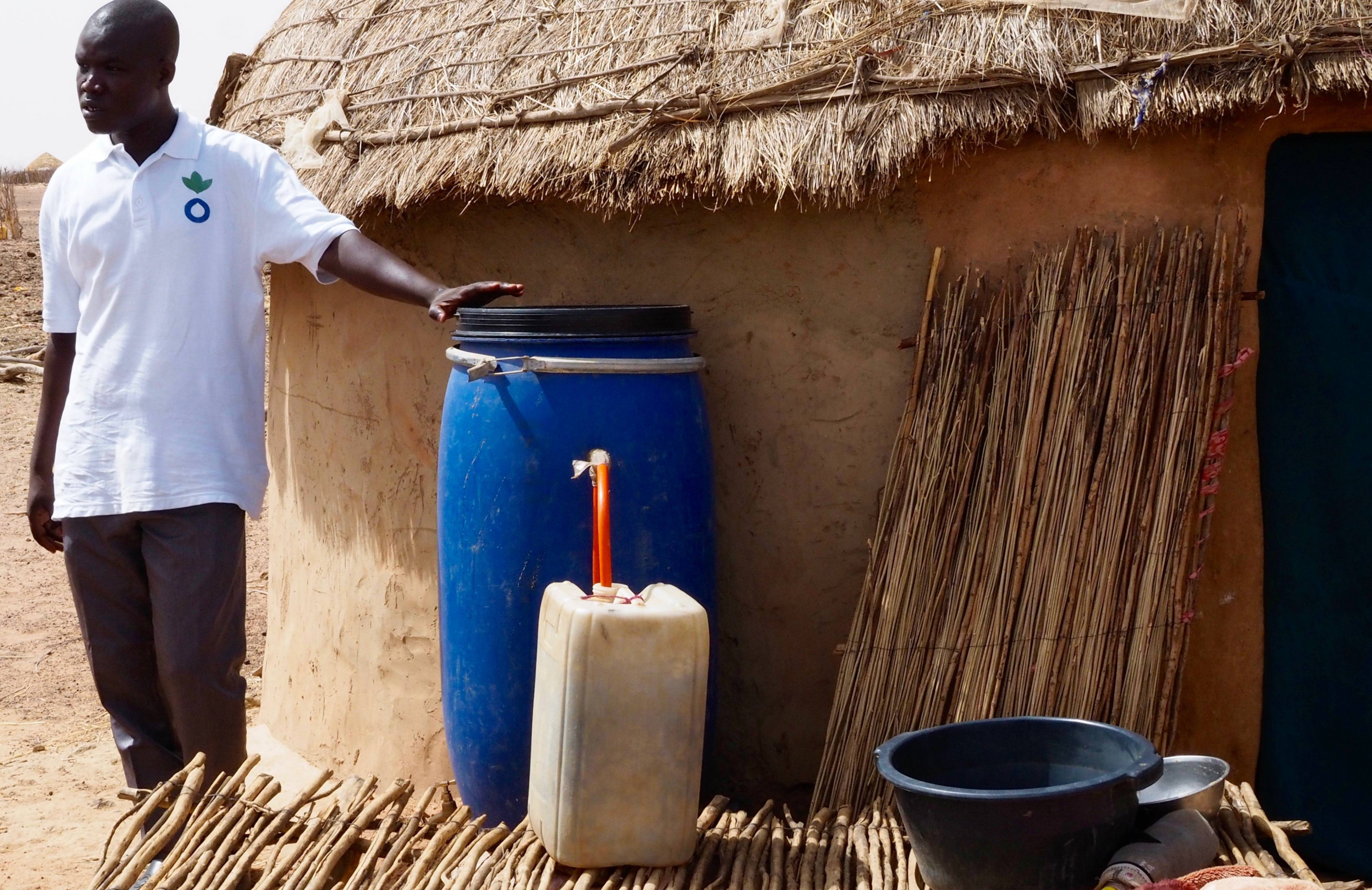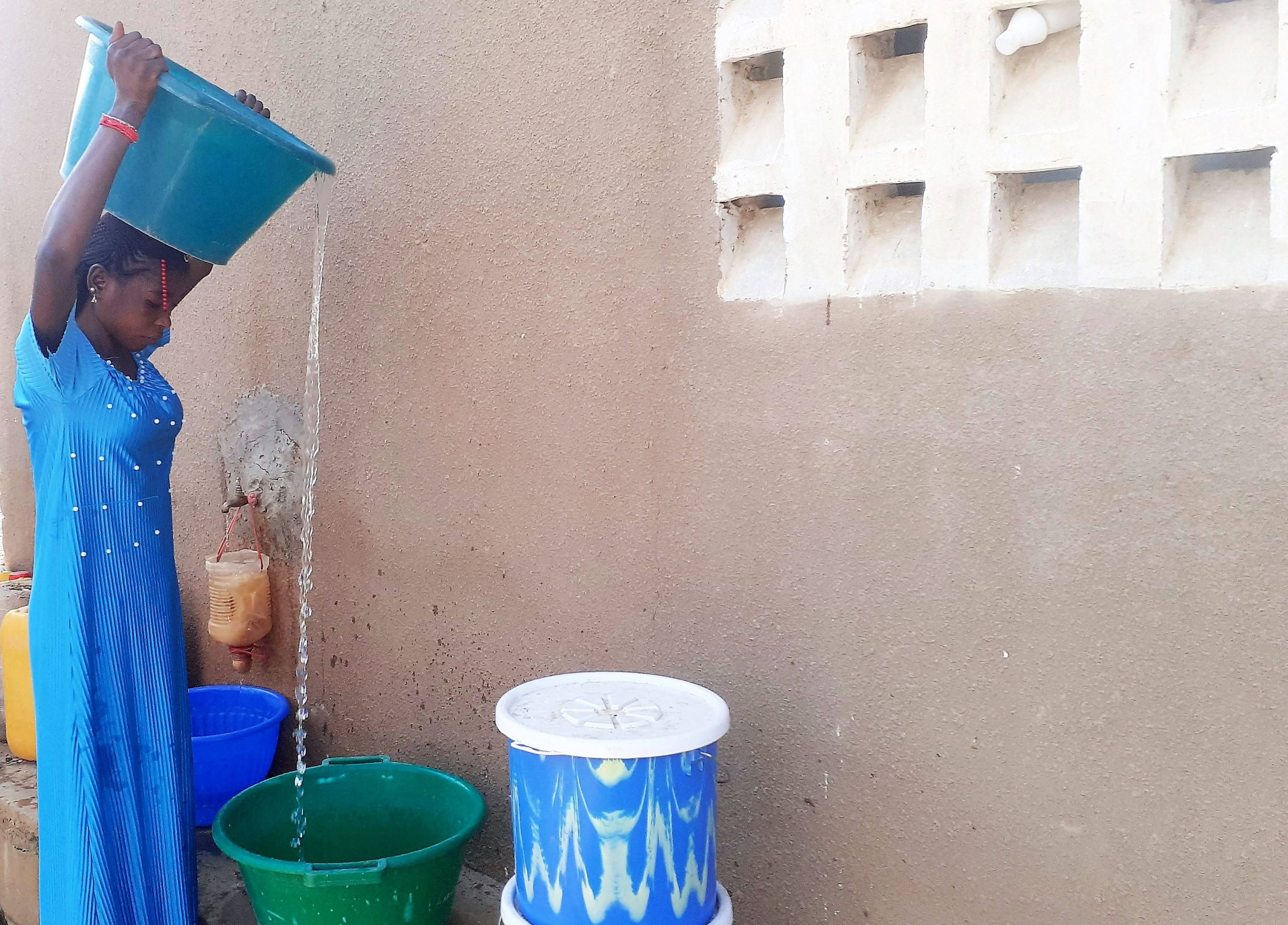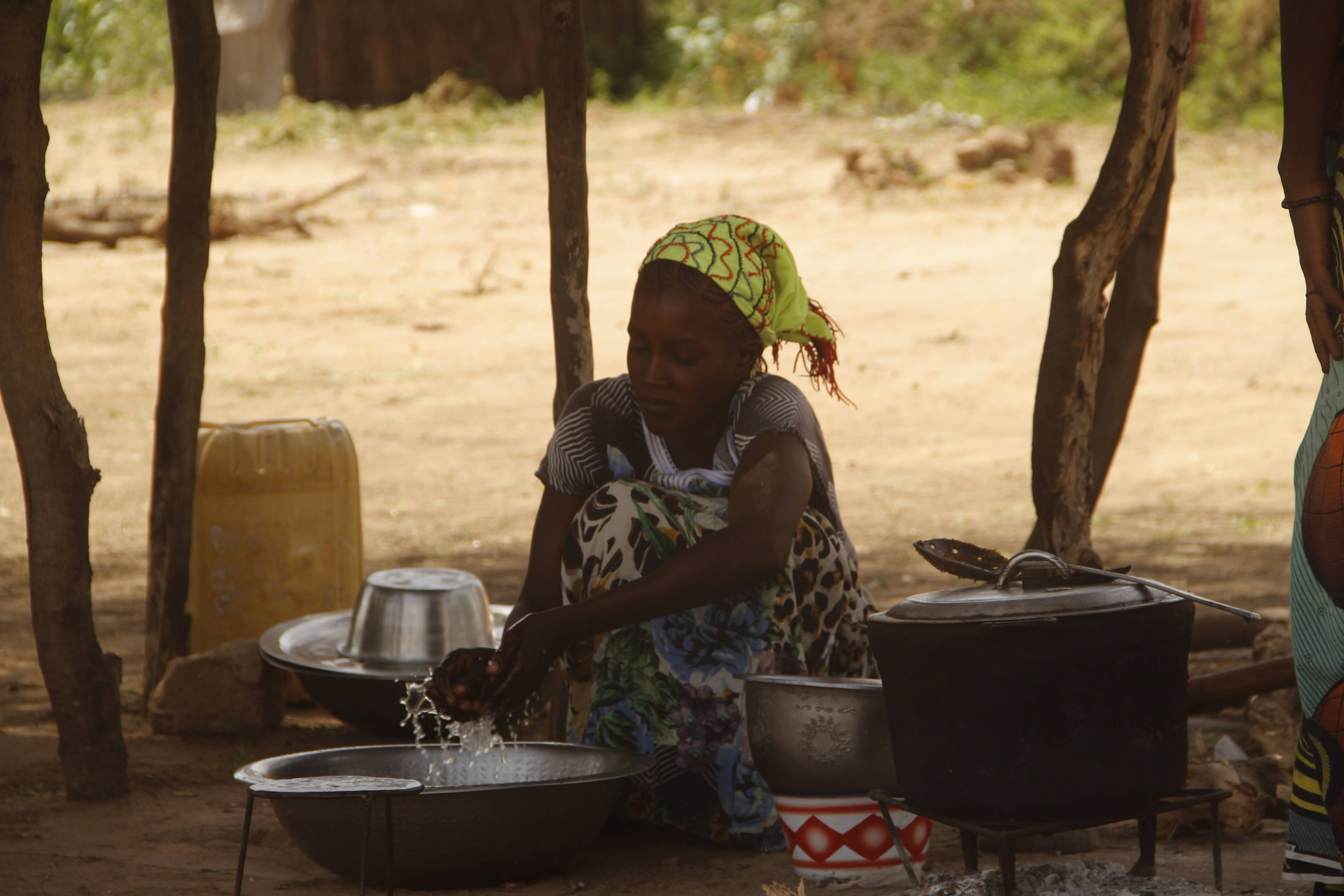Matam region. Matam, Ranérou, Thilogne, and Kanel healthcare districts, Senegal
In collaboration with

March 2022 – February 2023
Ensure the availability and sustainable management of water and sanitation, particularly in health centres, within the framework of adequate universal health coverage.
Objectives
- To contribute to reducing morbidity and mortality rates related to diseases transmitted by the lack of safe water and poor sanitation.
- To improve the hygiene and sanitation management quality in the selected community health centres and guarantee access to safe drinking water points.
Beneficiaries
87,944 directs
40,454 children under 15 and 44,412 women. People receiving healthcare at health centers and medical staff.
293,146 indirects
134,847 children under 15 and 148,039 women. People who live in the project intervention area.

On the ground
Endemic water shortages and recurrent food crises causing high rates of malnutrition. Notable deterioration of health systems.
The Matam region in northern Senegal stands out for water scarcity and recurring food crises. Matam has four health districts where the overall prevalence of malnutrition reaches 13%, compared to the national average of 8%. As in other regions of the country, Matam faces a severe humanitarian crisis caused by Covid-19, which has intensified inequalities and the shortcomings of a weak healthcare system. The lack of adequate WASH (water, sanitation, and hygiene) services affects 26% of the healthcare centers. These shortcomings favor the development of Covid-19 and other nosocomial diseases (contracted by those admitted to medical centers) that raise mortality rates and undermine the population’s confidence.
In detail
The lack of water supply is one of the most common and widespread health risks. Therefore, preventive management is vital. Public awareness and sensitization campaigns, based on the training of community leaders on hygienic practices, show that waterborne diseases can be minimized through regular water quality testing. Raising awareness of this quality control among those responsible for its management is necessary to avoid deaths and illnesses. In this project, we will work in coordination with the National Hygiene Service.
Some of the necessary measures to be implemented to prevent the spread and progress of diseases such as Covid-19 and other nosocomial pathologies are ensuring the availability and sustainable management of water and sanitation for all (SDG 6), particularly in healthcare centers as part of adequate universal health coverage.
The project guarantees access to drinking water in healthcare centers and the selected communities in the Matam region by implementing water quality monitoring and treatment actions. It will also promote good hygiene practices in 69 healthcare centers in the Matam region, which will receive WASH kits.
In addition to working in coordination with the hygiene brigade of the Matam region, one of the strengths of this project can be found in the awareness-raising messages aimed at the population via local radio stations.
Authorities and medical experts (locals who know the context very well) have identified needs and the response to be given. Regular meetings have been held with the Matam regional head doctor and the regional head of the hygiene brigade. They have consulted their bases to establish a consensus on prioritizing needs.
The project will also be developed in collaboration with UNICEF Senegal. These selected healthcare centers will focus on the prevention and treatment of acute malnutrition in a complementary manner to reduce the mortality and morbidity of the population in the Matam region.
Sustainability prospects
The project will be developed with a focus on communal intervention, which will be based on the healthcare system of the Matam medical region and the regional hygiene brigade, which will assume full responsibility for the project’s investments from its start.
The healthcare centers will manage the kits for users’ sustainable and optimum use (communities and healthcare staff). The supply of water, sanitation, and hygiene kits will go hand in hand with the training of medical staff and communities on their management and use. In turn, management committees will be strengthened and/or created in the healthcare centers, integrating resource sharing and community mobilization.




